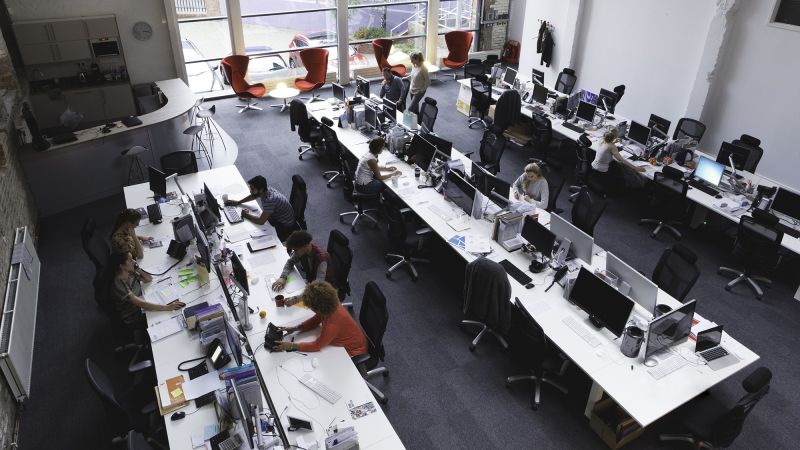In a recent discourse surrounding the implications of artificial intelligence (AI) in the workplace, Jeetu Patel, the president and chief product officer at Cisco, expressed his skepticism regarding dire predictions made by some tech leaders about the future of jobs. Patel outrightly dismissed the notion that AI technologies will render humans obsolete, calling it an “absurd concept.” During an interview with CNN, he emphasized his belief in the irreplaceable value of human workers, asserting, “I just refuse to believe that humans are going to be obsolete.”
Patel’s remarks come in response to comments made by Dario Amodei, CEO of Anthropic, who warned that AI could lead to an alarming spike in unemployment, estimating that it might reach 20% and that up to half of all entry-level jobs could vanish as a result of AI integration into the work environment. While Patel acknowledged that there may be “growing pains” and disruptions in job markets due to the rapid advancement of AI, he vehemently disagreed with the severe predictions posited by Amodei. “I reject the notion that humans are going to be obsolete in like five years,” Patel stated at the Ai4 conference in Las Vegas, emphasizing that the concept of a workforce left “sitting on the beach” due to AI is implausible.
Patel articulated his concern regarding the implications of dramatically reducing entry-level jobs, highlighting the strategic importance of integrating younger workers into companies. He argued that young professionals often possess a fresh understanding of technology and innovative perspectives that can significantly contribute to a company’s success. “If you just say, ‘I’m going to eradicate all entry-level jobs,’ that’s the stupidest thing a company can do in the long term,” Patel warned, reinforcing the idea that new perspectives are crucial for fostering creativity and innovation within organizations.
Moreover, he recognized that extensive experience can occasionally hinder one’s ability to adapt to new technologies. Patel claimed to significantly invest time collaborating with younger employees and interns, as he believes their unique viewpoints, blended with his own experience, create a fertile ground for innovation. “I learn a lot from people who’ve just gotten out of college because they have a fresh and unique perspective,” he noted, underscoring the importance of such collaboration for successful outcomes.
Despite Patel’s optimistic outlook on the role of humans in the workplace, some economists have raised concerns about the early signs indicating that AI may already be adversely affecting entry-level job opportunities. The Class of 2025 is reportedly facing the most challenging job market for new graduates in recent history. Surprisingly, for the first time since tracking began in 1980, the unemployment rate for recent graduates aged 22 to 27 has surpassed the national average. According to a report from Oxford Economics, entry-level hiring has decreased by 23% from March 2020 to May 2025, a decline that exceeds the overall hiring drop of 18% during the same timeframe.
AI’s integration into various sectors is cited as a contributory factor in this trend. Data indicates a significant drop in employment levels for recent graduates in industries particularly vulnerable to AI disruption, such as computer science and mathematics. “AI is definitely displacing some of these lower-level jobs,” stated Matthew Martin, a senior economist at Oxford Economics, acknowledging the genuine threat AI poses to certain job classifications.
Moreover, the jobs most vulnerable to automation tend to involve repetitive tasks that can be easily replaced by AI technologies. Alan Ranger, Vice President of Marketing at Cognigy — a company developing customer support AI agents — noted that while AI could automate many entry-level tasks, humans will still be needed to oversee AI systems and solve complex problems that arise. He acknowledged a future reduction in the number of customer support personnel as firms evolve and change hiring practices.
Ultimately, Patel concluded with a call for the tech industry and society to proactively manage the transition towards more advanced AI systems. He articulated the need for collaboration between the tech community and other societal sectors to facilitate retraining and reskilling initiatives, thereby mitigating potential negative impacts. “The tech community has to actually take some responsibility for this,” he asserted, emphasizing the critical need for a balanced and forward-thinking approach to the evolving relationship between humans and technology in the workforce.












